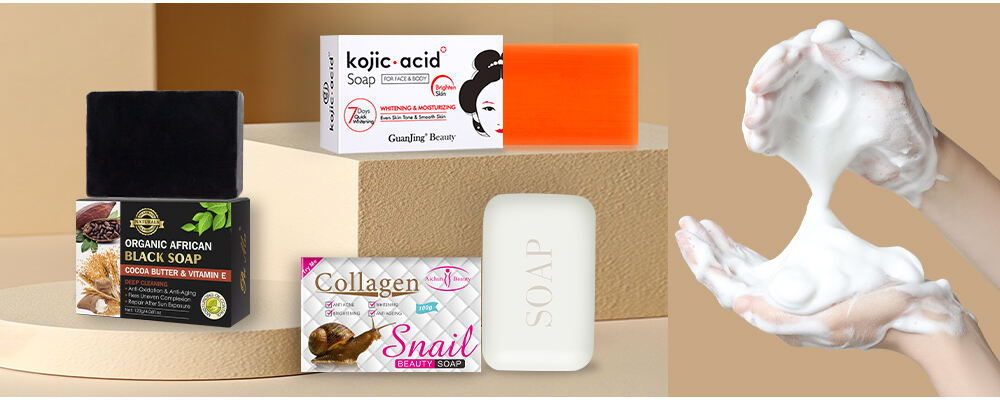The B2B beauty sector continues to show resilience and growth potential, even in the face of global economic challenges. As businesses navigate the complexities introduced by fluctuating economic conditions, the beauty sector maintains an optimistic trajectory. Remarkably, specific categories within the industry have demonstrated consistent growth over recent years, serving as indicators for future success. For instance, skincare products have seen a steady annual growth rate, reflecting consumer commitment to personal care regardless of wider economic pressures.
Brands within the B2B domain are adopting innovative strategies to not only survive but thrive amid these challenges. They are optimizing supply chains and focusing on cost management while still heavily investing in product development and innovation. This dual focus allows them to stay competitive and meet the evolving demands of global markets. By balancing these elements, companies uphold their position within the industry and continue to contribute to its lucrative expansion. This strategic evolution highlights the adaptability and forward-thinking nature of businesses within the beauty industry.
The increasing focus on self-care and wellness has become a significant force driving sales within the B2B beauty industry in post-pandemic times. Consumers are prioritizing their health and well-being, resulting in a shift toward products that support these values. This trend is supported by data showing a marked increase in consumer spending on wellness-related beauty products. Surveys reveal that a sizeable portion of consumers are now more willing to invest in products that enhance their well-being, aligning with a broader shift in lifestyle priorities.
Effective marketing campaigns have capitalized on this trend by emphasizing self-care and wellness, resonating deeply with modern consumer behavior. These campaigns often highlight the emotional and physical benefits of beauty routines, bridging the gap between beauty and wellness. By doing so, they successfully engage consumers who are increasingly looking to invest in products that promise holistic well-being benefits. As businesses continue to focus on self-care-oriented products and messaging, they are likely to experience continued growth and alignment with consumer expectations within the B2B beauty sector.
Social media platforms such as Instagram and TikTok have revolutionized brand visibility and product discovery within the B2B beauty sector. These platforms serve as dynamic tools for engaging with consumers and facilitating brand storytelling, essential for fragrance and skincare companies. Studies indicate that a significant portion of purchase decisions are influenced by social media, with platforms facilitating up to 70% higher engagement rates for beauty brands compared to other sectors. Viral trends, like those involving skincare routines or new fragrance releases, often originate on these platforms, transforming consumer curiosity into purchasing behavior. Additionally, collaborations between brands and influencers have proven to be impactful in building credibility and driving sales, as influencers often embody the brand's values and aesthetics, effectively reaching large audiences.

There's been a notable rise in consumer demand for affordable alternatives, or 'dupes,' within face mask and body care categories. This trend primarily stems from the desire to access high-quality skincare products without the premium price tag. Market data indicates that the popularity of dupes has grown substantially, with categories like face masks witnessing increased consumer loyalty to cost-effective options that do not compromise on quality. Brands are capitalizing on this trend by producing quality dupes that target price-sensitive consumers while ensuring product efficacy and maintaining consumer trust. This includes innovating formulations and utilizing strategic marketing to highlight the balance between affordability and quality.
A hybrid retail model, blending e-commerce with in-store experiences, is increasingly shaping the B2B beauty sector, offering a comprehensive shopping journey tailored to consumer preferences. E-commerce in the beauty industry has seen over 30% growth annually due to its convenience and variety, yet the in-store experience remains crucial, particularly for physical product testing. Successful case studies show that brands implementing hybrid strategies enable seamless transitions between digital and physical shopping, enhancing customer satisfaction and loyalty. These companies effectively utilize data-driven campaigns and personalized services both online and offline, crafting a cohesive brand experience that resonates with contemporary consumers seeking both convenience and engagement.
Livepro Beauty has established itself as a frontrunner in the skincare industry, largely due to its advanced research and development (R&D) capabilities. The company's commitment to innovation is evident through its pioneering skincare formulations that address contemporary skin care needs effectively. Livepro Beauty has spearheaded numerous successful product launches by focusing on trending ingredients and novel formulation techniques. This includes integrating beneficial components that meet consumer demands for effective skin solutions. Moreover, Livepro has collaborated with renowned cosmetic scientists and dermatologists, which has augmented the efficacy and safety of its products. These partnerships not only enhance product quality but also bolster the brand's reputation for delivering dependable and effective skin care products.
In the realm of global manufacturing, Livepro Beauty stands out due to its rigorous production standards that comply with international regulatory requirements. The company's certified production capabilities make it a trusted partner for brands worldwide. By adhering to globally recognized certifications such as GMP (Good Manufacturing Practice) and ISO standards, Livepro ensures the highest level of quality assurance across its production processes. This not only highlights its commitment to maintaining superior quality but also reassures global markets of its reliability as a manufacturing entity. Furthermore, Livepro's ability to scale production efficiently allows it to meet varying market demands without compromising on quality. This scalability ensures that the company can serve diverse global markets while upholding its standards of excellence, a crucial factor for maintaining competitiveness in the international beauty sector.
The growing consumer interest in anti-aging solutions is significantly propelling the active cosmetics market. As consumers become more aware of and interested in preserving youthful skin, brands are innovating to meet this demand. According to market research, the global anti-aging industry is projected to grow consistently, driven by the increasing elderly population and a rising desire for youthful appearance. Data suggests that the market for anti-aging products could see a compound annual growth rate (CAGR) of around 5% in the upcoming years. Active ingredients such as retinoids, peptides, and hyaluronic acid are on the rise, with dermatological studies highlighting their effectiveness in reducing wrinkles and fine lines, thereby supporting the booming demand for such innovative cosmetic solutions.

Consumers are increasingly favoring sustainable and ethical ingredients in personal care products like soap and toothpaste. This demand is part of a larger 'clean beauty' movement, which encourages the use of environmentally friendly and non-toxic components. Recent data shows a significant growth in this sector, with over 60% of consumers willing to pay a premium for products that are both sustainable and ethically sourced. Brands are responding by prioritizing the sourcing of natural ingredients and investing in eco-friendly formulation practices to adhere to consumer expectations and regulatory standards. This shift reflects a broader desire for transparency and corporate responsibility in skin care products, shaping purchasing decisions in favor of sustainability.

The rise of gender-neutral hair care products marks a significant trend in the beauty industry, aligning with broader movements towards inclusivity and diversity. Many brands are revising their marketing and product development strategies to cater to this growing acceptance. Market data reveals an increase in consumer demand for products that break traditional gender norms, signaling a shift in how beauty products are perceived. Brands are now crafting messages and product lines that resonate with all genders, reflecting society's evolving view on gender identity. By focusing on universal benefits like hydration, nourishment, and scalp health, companies are appealing to a wider audience, fostering brand loyalty and expanding their consumer base.
The future of skincare technology is poised for transformative advancements, with personalized skincare solutions and AI-driven product recommendations at the forefront. Technologies such as micro-needling and at-Home devices continue to evolve, greatly enhancing the consumer experience through increased accessibility and efficiency.
Livepro stands out with its adeptness at delivering tailored beauty solutions, addressing specific client needs within the B2B beauty market. By focusing on customization, Livepro has demonstrated its ability to innovate and adapt, exemplified through various successful case studies of bespoke projects that showcase its market adaptability. The importance of such customized solutions cannot be overstated in the beauty sector; they not only enhance client relationships but also significantly drive business growth. As brands increasingly rely on partnerships that cater to individualized requirements, companies like Livepro are well-positioned to meet this demand, further establishing their capacity to lead in the industry.